Indonesia and Saudi Arabia recently agreed to increase their cooperation on defense matters. In an email interview, Ann Marie Murphy, an associate professor at the Whitehead School of Diplomacy at Seton Hall University, discussed Indonesian-Saudi relations. WPR: What is the current state of Saudi-Indonesian relations? Ann Marie Murphy: Indonesian-Saudi relations are currently strained over a string of cases of abuse of Indonesian migrant workers by their Saudi employers. With more than 3 million Indonesians working abroad, protection of migrant workers is a politically charged issue in Indonesia, and graphic pictures of young maids tortured in Saudi Arabia triggered an uproar […]
Latest Archive
Free Newsletter
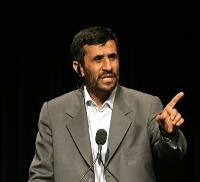
At first glance, the power struggle currently taking place among Iran’s ruling elites might seem bizarre. After all, it is not often that the chief executive of a 21st-century nation is accused of “witchcraft,” “experimenting with exorcism” and “communicating with genies.” Mullahs have tarred Iranian President Mahmoud Ahmadinejad’s administration as containing “deviants, devils and evil spirits.” Ahmadinejad responded that his opponents have launched a “conspiracy” to undo socio-economic changes beneficial to most Iranians. At the heart of the widening dispute is Ahmadinejad’s increasing independence from the system of “velayat-e faqih,” or guardianship of the — religious — jurist, on which […]
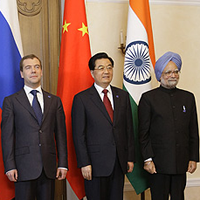
Much has been written about the potential impact that the demise of Osama bin Laden and the possible disintegration of al-Qaida will have on U.S. foreign policy, beginning with the question of whether this will trigger a more rapid disengagement from Afghanistan. But bin Laden’s death could also change the foreign policy calculus of other states, notably Russia, which for the past 10 years has promulgated its own version of the global war on terror as a central organizing principle for international affairs. Even before the Sept. 11 attacks, Moscow had already seen bin Laden as a threat to the […]
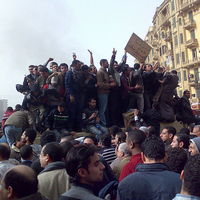
Following the revolutions in Tunisia and Egypt and the developments still unfolding in the region, several questions arise: Is the Arab Spring over? Have we reached a turning point where no new revolutions are likely and where the remaining autocratic leaders will reaffirm their power monopolies? And what do post-revolutionary developments in Tunisia and Egypt suggest about the pace and prospects of their political opening and possible democratization? In trying to answer these questions, the two waves of democratization in Eastern Europe and Eurasia provide useful analytical comparisons. The 1989 revolutions in the former communist bloc, as well as its […]
Voting was so evenly split over Ecuador’s 10-question referendum last weekend that it remains too close to say which, if any, of the reforms pushed by the country’s 39-year-old president, Rafael Correa, will be drafted into law. According to reports yesterday, “yes” votes were within a half percentage point of “no” votes on the more controversial proposals calling for the dissolution and overhaul of the country’s judiciary and the creation of a government panel to police the news media. Some observers are saying the high number of “no” votes indicates a growing wariness in Ecuador toward Correa’s broader ambition to […]
May 1 marked the end of a transitional period for the European Union, after which all existing members were required to fully open their labor markets to eight countries that joined the union on May 1, 2004. In an email interview, Herbert Brücker, an expert in European integration at the Institute for Employment Research in Germany, discussed the opening of the EU labor market. WPR: What was the logic behind the labor market restrictions that were recently lifted? Herbert Brücker: According to the “2+3+2” formula, the European Union agreed to suspend free labor mobility for up to seven years for […]
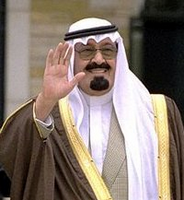
CAIRO — Following the ouster of former President Hosni Mubarak, Egypt seems poised to pursue a more independent foreign policy in the Middle East. But as Cairo prepares to change course from Mubarak’s unblinking adherence to the region’s pro-U.S. bloc, Saudi Arabia can be expected to do its best to prevent both the current military leadership and any future civilian government from disrupting the status quo. Riyadh, whose first concern is blocking the expansion of Iranian influence, has an arsenal of political, economic and social tools to keep Egypt in check. Saudi Arabia’s rulers, long accustomed to dealing with Mubarak’s […]
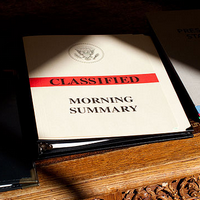
Last November, when the State Department learned that an outfit called WikiLeaks had acquired tens of thousands of secret U.S. diplomatic cables, the reaction in Washington bordered on panic. WikiLeaks had already released secret papers on the Afghanistan war, which the Pentagon said had gravely endangered many lives. Facing an impending torrent of classified documents covering U.S. interests on all continents, top American diplomats tried to brace the country for the harsh impact. They anxiously predicted the massive leak would be “harmful to our national security.” Five months after WikiLeaks broke the latch on its treasure trove and started scattering […]
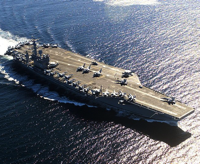
Driven in part by a recent article in Proceedings, the magazine of the United States Naval Institute, the debate over the nature and utility of aircraft carriers has once again erupted between naval analysts. In “Twilight of the $uperflous Carrier,” Capt. Henry J. Hendrix of the U.S. Navy and retired Lt. Col. J. Noel Williams of the U.S. Marine Corps argue that modern supercarriers are simply too expensive and too vulnerable to be usable weapons of war. They contend that the era of the supercarrier has come to an end, and that the future of naval power resides in warships […]

In what was described as a major milestone in the six-nation Multirole Medium Combat Aircraft (MMRCA) tender, the Indian Ministry of Defense announced the final contenders for the $10 billion, 126-plane purchase in April. Only the Dassault Rafale and the Eurofighter Typhoon were left in the fray, while Boeing’s F-18 E/F Superhornet, Lockheed Martin’s F-16, Saab’s Gripen and UAC’s MiG-35 were all eliminated. The selection of aircraft offered only by European manufacturers has been seen by many U.S. commentators as a political snub to the Indo-U.S. strategic partnership, despite the Indian government’s great efforts to frame the decision as a […]
The U.S.-China relationship may have reached its strongest footing of the Obama presidency, judging from high-level talks that came to a close in Washington yesterday. But some observers noted a palpable gap in focus between the two powers, with the U.S. addressing a broad agenda — ranging from concerns over the value of the yuan to human rights — and China more narrowly concentrated on issues pertaining to its sovereignty. The core of China’s agenda going into the Strategic and Economic Dialogue was a strategy of maintaining control “over their territory and their waters, and frankly their cyberspace,” says Patrick […]
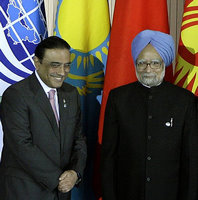
India’s policy of continued engagement with Pakistan took a blow in the wake of Osama bin Laden’s killing in Abbottabad, barely 100 yards from the gates of a Pakistani military academy. Islamabad’s alleged role in shielding bin Laden — and perhaps other terrorist organizations that pose a direct threat to India — has driven calls to modify New Delhi’s outreach initiative toward its South Asian neighbor. It has also resurrected the question dogging Indian policymakers since the 2008 Mumbai massacre: Should India continue to engage with Pakistan even though Islamabad cultivates terrorist groups as a strategic option and harbors some […]
In April, the leaders of Colombia, Chile, Mexico and Peru signed the Pacific Agreement, creating a new regional economic bloc. In an email interview, Augusto Varas, co-vice chair of the Advisory Board for the Latin American Program at the Woodrow Wilson International Center for Scholars, consultant for the Norwegian Peacebuilding Resource Centre and chairman of Fundación Equitas, discussed the Pacific Agreement. WPR: What was the driving force behind the Pacific Agreement? Augusto Varas: Latin American governments and the private sector have shown different levels of success in creating an enabling environment for business in the region, and, in some cases, […]
Myanmar was recently reported to have concluded its first set of international energy deals — with China, Singapore and South Korea — since the installation of a nominally civilian government late last year. In an email interview, Matthew Smith, a senior consultant for EarthRights International, discussed Myanmar’s trade and energy relations. WPR: What is the current state of Myanmar’s energy sector, and who are its major international partners? Matthew Smith: Myanmar — also referred to as Burma — is rich in natural gas, and its rivers have the region’s greatest potential for hydropower generation. Investment in the energy sector is […]

U.S. and NATO officials are currently deciding what specific arms control measures they will seek regarding the remaining tactical nuclear weapons (TNW) in Europe. Although NATO officials have linked further reductions in the alliance’s TNW to reciprocal Russian reductions, NATO governments have yet to propose any formal TNW negotiations with the Russian government. Specifically, they must determine what objectives to seek, what negotiating forum to use, and how to verify any agreement regarding these weapons. When the U.S. Senate ratified the New START Treaty last December, it also enacted a resolution directing the Obama administration to begin negotiations with Russia […]

BEIJING — As policymakers from the world’s two largest economies gather in Washington for the third U.S.-China Strategic and Economic Dialogue, the Chinese yuan is trading at a 30-year high against the dollar, while its convertibility has expanded significantly since this time last year, and bullish sentiment surrounds its future evolution. Although this may suggest China is finally getting serious about rationalizing the value of the yuan, recent measures are geared toward internationalization rather than genuine liberalization, and China’s economy is still decades away from being able to support a free-floating currency. It is in the U.S. interest to support […]
